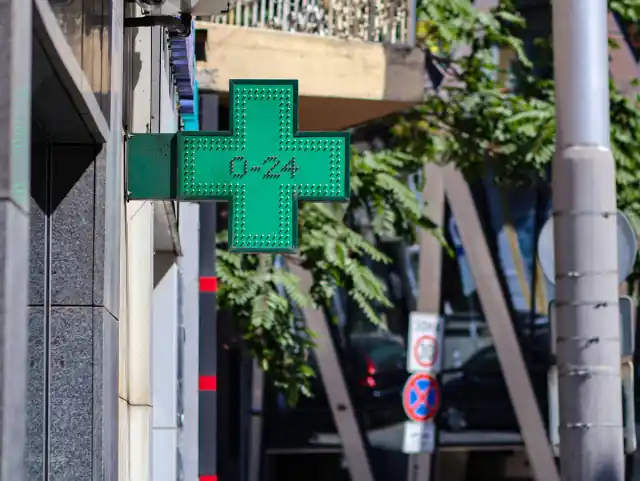
Twelve regions in Bulgaria, including Vidin, Dobrich, Lovech, Montana, and Yambol, currently lack any 24-hour pharmacies, raising concerns about residents’ access to essential medications during nighttime hours.
The other affected regions are Pazardjik, Pernik, Razgrad, Silistra, Smolyan, Targovishte, and Shumen. According to recent data from the Bulgarian News Agency (BGNES), only 57 round-the-clock pharmacies are operating nationwide, with the majority concentrated in larger cities.
As of mid-August 2024, these 24-hour pharmacies serve 17 municipalities across 16 regions, with a notable disparity in their distribution. Sofia, the capital, has the highest concentration of such pharmacies, with 24 locations spread across 16 districts.
Despite the relatively better access in Sofia, many parts of the country remain underserved, leaving residents in certain regions with limited options for obtaining essential medical supplies at night.
The shortage of 24-hour pharmacies has sparked debate about healthcare accessibility, particularly for rural and underserved communities.
Residents in areas without round-the-clock access to medication are often forced to travel long distances to find an open pharmacy, a situation that can be particularly challenging in medical emergencies.
The uneven distribution of pharmacies underscores the broader regional disparities in healthcare infrastructure in Bulgaria.
However, there have been some improvements in recent months. Between June 2023 and August 2024, 11 new 24-hour pharmacies opened, representing a 20% increase in the total number of such facilities.
These new pharmacies were established in nine municipal centers, many of which previously had no round-the-clock pharmacy. This expansion marks a step forward in addressing the gap in nighttime pharmaceutical services.
Among other major cities, Plovdiv has eight 24-hour pharmacies, making it the second-best-served city after Sofia. Burgas follows with five, while Varna has four, and both Ruse and Stara Zagora have three each.
Despite these additions, many regions remain without adequate coverage, prompting calls for further investment in pharmacy services in smaller municipalities and rural areas.
The government has been under increasing pressure to address the issue. Healthcare advocates argue that 24-hour access to pharmacies is not just a convenience but a critical public service, particularly for individuals with chronic illnesses who may need emergency medication during off-hours.
For now, residents in the underserved regions must rely on the limited availability of daytime pharmacies or travel to nearby towns with round-the-clock services.
The issue is expected to remain a key topic of discussion in Bulgaria’s healthcare policy debates as citizens continue to demand better access to essential health services.
As Bulgaria moves toward improving its healthcare infrastructure, the expansion of 24-hour pharmacies remains a priority for both residents and health officials alike.
While recent developments are encouraging, much work remains to be done to ensure that all Bulgarians have reliable access to medications, regardless of their location.
